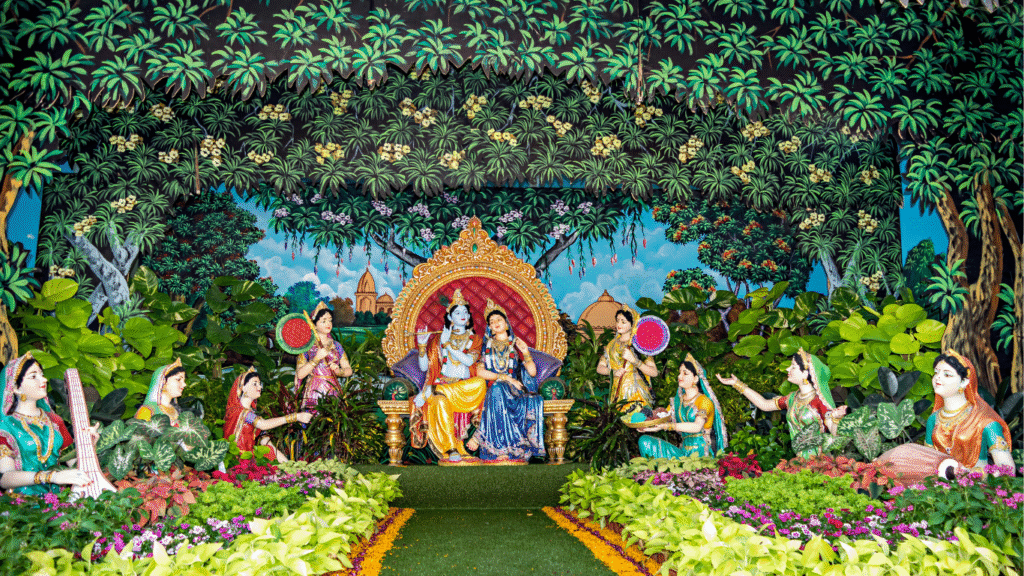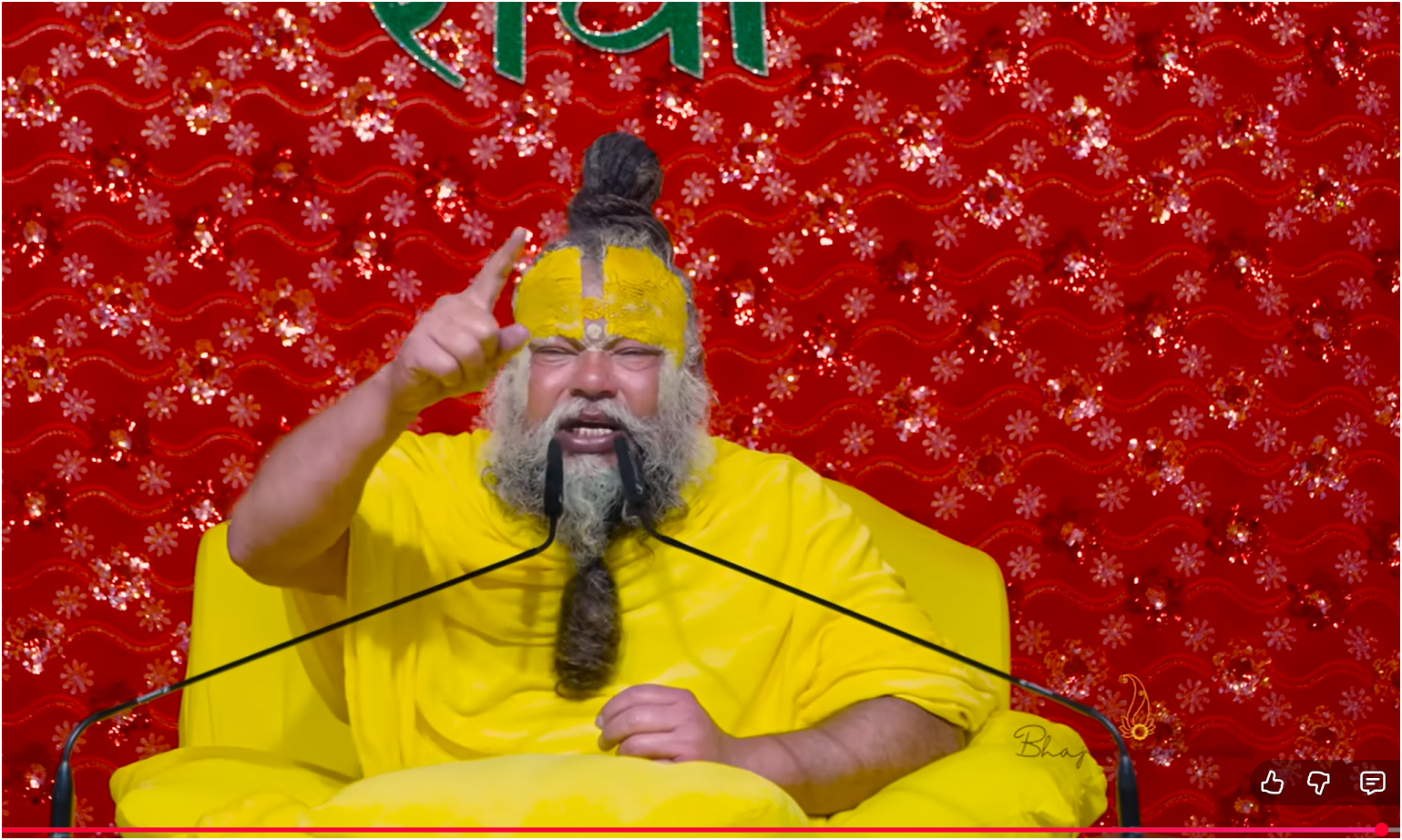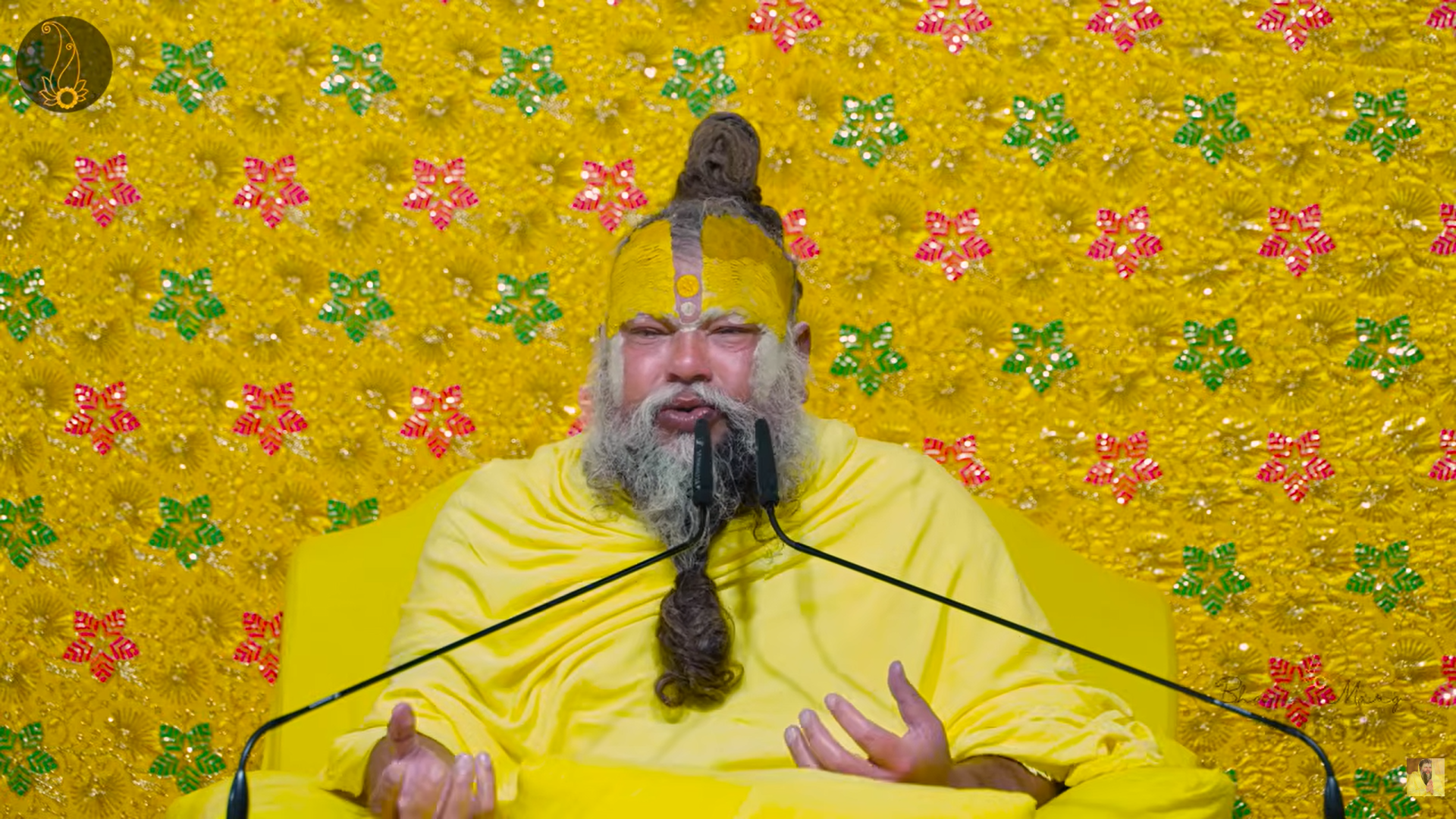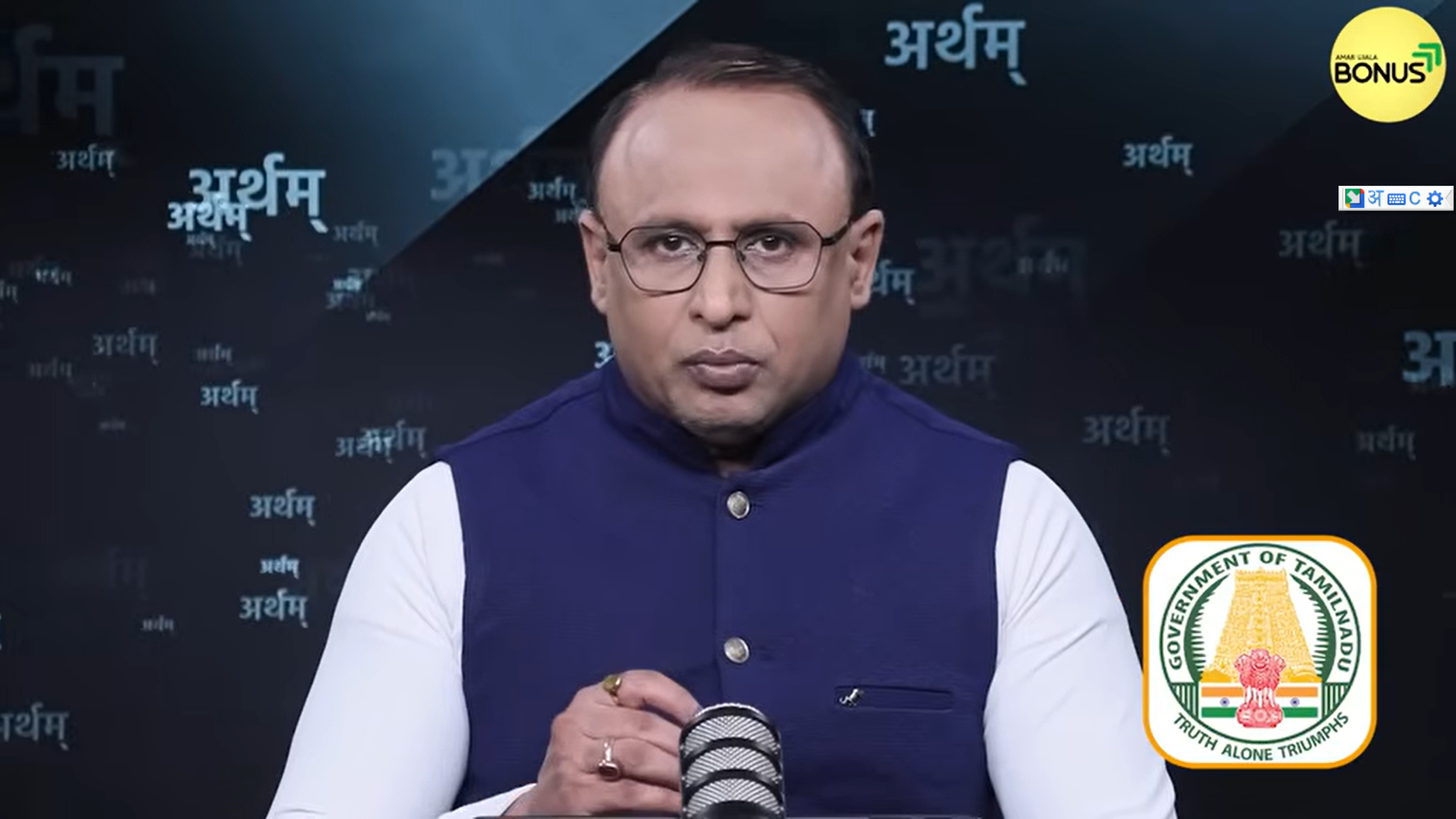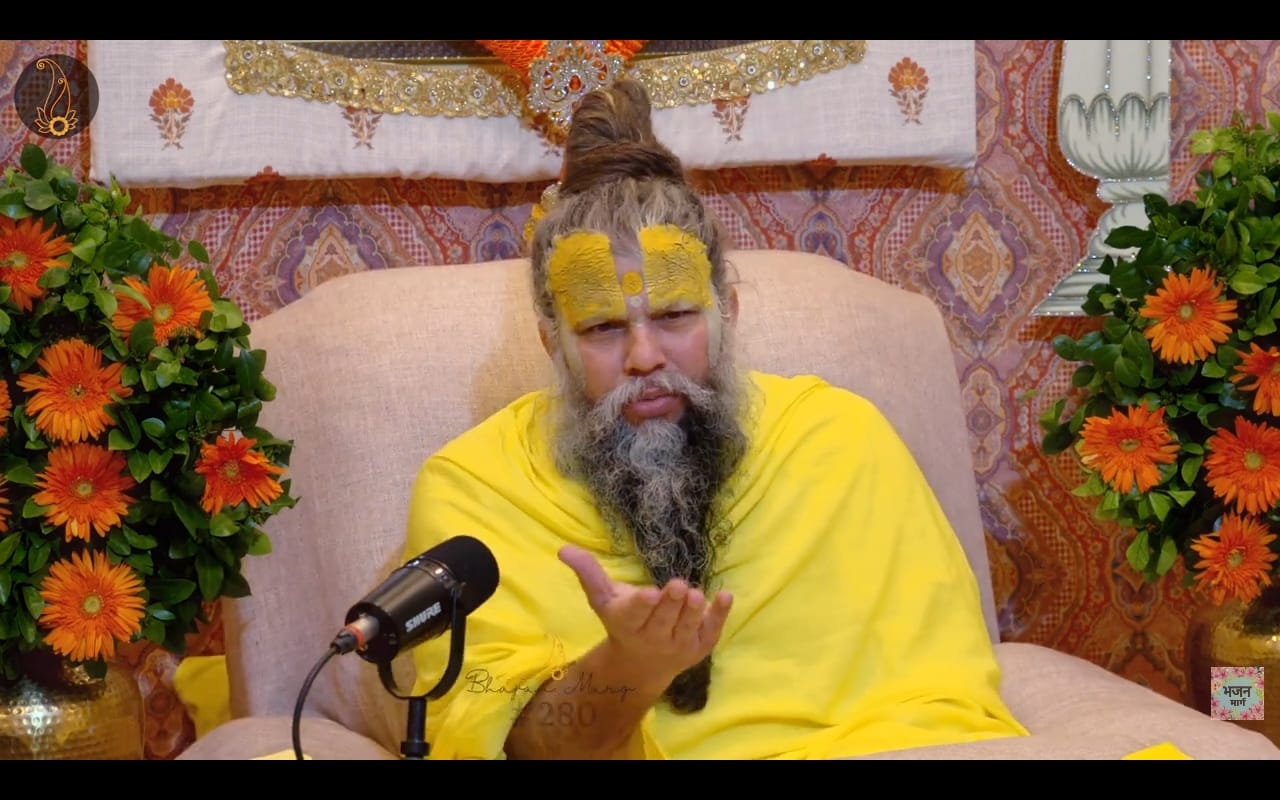
#Pativrata #Spirituality #Marriage #Faithfulness #IndianCulture #PremanandMaharaj #RelationshipAdvice #BhajanMarg #Hinduism #SanatanDharma #WomensEmpowerment #Love
पतिव्रता का अर्थ: सनातन धर्म और आधुनिक संदर्भ में
भारतीय समाज में ‘पतिव्रता’ शब्द को बहुत पवित्र और उच्च भावनाओं के साथ जोड़कर देखा जाता है। यह शब्द दो भागों से मिलकर बना है – ‘पति’ अर्थात् जीवन साथी और ‘व्रता’ अर्थात् व्रत या दृढ़ निष्ठा। इसका आशय है, एक स्त्री का अपने पति के प्रति सम्पूर्ण समर्पण, निष्ठा और पवित्रता। किंतु, कई बार पतिव्रता की अवधारणा को केवल व्यवहार या सद्गुणों के अनुरूप ही सीमित कर दिया जाता है, जैसे पति से कभी विवाद न करना, हमेशा उसकी आज्ञा का पालन करना, या स्वयं कोई निर्णय न लेना।
परंतु, यदि कोई स्त्री अपने पति के प्रति पूर्णतः ईमानदार है, उसके अलावा किसी अन्य पुरुष की ओर दृष्टिपात तक नहीं करती, किंतु यदाकदा आपसी लड़ाई-झगड़े या असहमति हो जाती है, तो क्या वह पतिव्रता की श्रेणी से बाहर हो जाती है? यह एक ऐसा प्रश्न है, जो आज के सामाजिक परिवर्तन के दौर में विचारणीय बन गया है।
सन्त श्री हित प्रेमानन्द गोविन्द शरण जी महाराज का दृष्टिकोण
प्रसिद्ध संत, वृन्दावन रसिक संत श्री हित प्रेमानन्द गोविन्द शरण जी महाराज ने इस विषय को अत्यंत संवेदनशीलता से, सनातन धर्म के आधार पर समझाया है। उनके अनुसार, केवल पति से बहसबाजी या जिंदगी में टकराव होना पतिव्रता धर्म को भंग नहीं करता, जब तक कि स्त्री का मन, आचरण, और दृष्टि अपने पति के अलावा किसी अन्य की ओर आकर्षित नहीं होता।
उनके प्रवचन में स्पष्ट रूप से कहा गया, “लड़ना भी प्रेम का अंग है। उसे ‘मान’ कहा जाता है। बस इतना ध्यान रहे कि वह झगड़ा इतना विभत्स या हानिकारक रूप न ले ले, जिससे सम्बंधों में दरार आ जाए।”
सामाजिक और आध्यात्मिक महत्व
श्री महाराज जी के अनुसार, पवित्रता और पतिव्रता का अर्थ केवल शरीर तक सीमित नहीं है, बल्कि हृदय, भावनाओँ और विचारों की निष्ठा भी अत्यावश्यक है। यही कारण है कि भारत के पारंपरिक समाज में स्त्री-पुरुष संबंधों को अत्यंत मर्यादापूर्ण माना गया है। आज के समय में, जहां ‘बॉयफ्रेंड-गर्लफ्रेंड’ कल्चर तेजी से बढ़ रहा है, वहां ऐसे सवाल साधारण हैं। लेकिन महाराज जी का कहना है कि जो अपने पति के अलावा किसी पुरुष से मन, वचन या कर्म से संबन्ध नहीं रखती, वही सच्ची पतिव्रता है।
पति-पत्नी के झगड़े: प्रेम का एक स्वरूप
महाराज जी ने उदाहरण के रूप में भगवान भक्त और भगवान के रिश्ते की चर्चा की – “जैसे भगवान के भक्त उनसे रुठ भी जाते हैं, इसी तरह पत्नी भी पति से नाराज होती है, पर उसका ह्रदय केवल अपने पति के लिए ही धड़कता है।” वह उदाहरण देते हैं कि एक बच्चा जब गिरता है तो मां से लड़ता भी है, पर उसकी सुरक्षा का भरोसा केवल मां पर ही होता है – ठीक वैसे ही पत्नी अपने पति से नाराज हो सकती है।
बिछुड़न का दुःख और पतिव्रता
आगे, महाराज जी ने यह भी बताया कि जो पतिव्रता स्त्री अपने पति के बिछड़ने पर मानसिक रूप से विचलित हो जाती है, परेशान रहती है, वह उस प्रेम और लगाव की चरमावस्था है। जब पति से कोई दूरी होती है, पतिव्रता स्त्री का ह्रदय और अधिक उसी की स्मृति में डूब जाता है, और यही प्रेम का सच्चा स्वरूप है।
यही कारण है कि पतिव्रता स्त्री, अपने प्रिय के बिना किसी और में मन नहीं लगा सकती – न वस्तु, न स्थान, न व्यक्ति। यहां तक कि वियोग के समय भी उसके आचरण में पवित्रता और निष्ठा बनी रहती है, और ऐसे समय में साधना, नामजप तथा सत्संग को अपनाना चाहिए। वियोग का शुद्ध दुःख, सारे पापों का हरण कर, भगवत प्राप्ति में सहायक होता है।
पतिव्रता धर्म के आधुनिक अर्थ
आज की भौतिकवादी दुनिया में विवाहेतर संबंधों, खुले संबंधों (open relationships) और टेम्परोरी रिलेशनशिप्स का बोलबाला है। लेकिन सनातन धर्म की दृष्टि में, पतिव्रता का मापदंड कठोर है – मन, वचन, कर्म से पति के प्रति सम्पूर्ण निष्ठा। इसका अर्थ यह हरगिज नहीं है कि पत्नी और पति के बीच कभी झगड़ा या असहमति न हो। बल्कि, वह रिश्ता तभी मजबूत होता है, जब उसमें दोनों की भावनाओं का स्वतंत्र रूप से आदान-प्रदान हो सके।
पतिव्रता और स्वयं का सम्मान
कई बार, ‘पतिव्रता’ को इतना संकीर्ण बना दिया जाता है कि उससे स्त्री का आत्मसम्मान आहत हो जाता है। लेकिन एक सच्ची पतिव्रता स्त्री वही है, जो अपने पति के प्रति निष्ठा रखते हुए, समय-समय पर अपने हक, भावनाओं, और विचारों की भी अभिव्यक्ति करे। यही स्वस्थ वैवाहिक संबंध की बुनियाद है।
निष्कर्ष
यदि आप अपने पति के सिवा किसी अन्य पुरुष के प्रति आकर्षित नहीं होतीं, उनके प्रति निष्ठावान, प्रेमपूर्ण और समर्पित हैं, तो आप पतिव्रता हैं। यदाकदा झगड़े होना, अपशब्द हो जाना, स्वाभाविक मानवीय प्रक्रिया है – इसमें न तो पतिव्रता में कमी आती है, न ही धर्म में दोष।
मूल बात, नीयत और व्यवहार की पवित्रता है, न कि परिपूर्णता या त्रुटिहीनता। जैसे भक्त और भगवान का संबंध, वैसे ही सच्चे पति-पत्नी का – झगड़ा भी प्रेम है, महत्वाकांक्षा भी प्रेम है, मगर बाह्य संबंध रहित समर्पण पतिव्रता का मूल है।
ENGLISH ARTICLE
True Meaning of Pativrata: Loyalty, Purity, and Marital Commitment in Spiritual and Social Context
In the nuanced fabric of Indian society, the word ‘Pativrata’ carries profound spiritual, social, and cultural significance. It translates to a wife’s unwavering dedication and loyalty towards her husband, enveloped in both emotional and spiritual fidelity. However, in a changing world where relationships are being redefined, questions arise:
“If I argue with my husband, but never allow myself to even look at another man with desire, am I still considered a pativrata? Does a quarrel disqualify me from this revered status?”
This article explores the essence of pativrata through the teachings of Param Pujya Vrindavan Rasik Sant Shri Hit Premanand Govind Sharan Ji Maharaj, a venerated spiritual leader whose discourses clarify the real meaning of this virtue.
The Spiritual Foundation of Pativrata
‘Pati’ means husband; ‘vrata’ means vow. In essence, pativrata is a solemn vow a woman takes, voluntarily or culturally, to devote her emotional, physical, and spiritual being to her husband alone. In Sanatan Dharma (the eternal spiritual way of life in India), the virtues associated with married women are not limited to mere acts but encompass a deep internal commitment.
But societal interpretations often miss the depth. Frequently, pativrata is misread as blind submission, complete acquiescence or, worse, an absence of individuality. Questions like “Is having an argument with the husband a blemish on pativrata?” are common, especially in the modern context.
Saint Premanand Maharaj’s Enlightened Perspective
In response to such queries, Sant Shri Hit Premanand Govind Sharan Ji Maharaj offers a compassionate, holistic view. According to his discoursed wisdom, pativrata is not about never raising your voice or harboring personal feelings; rather, it’s about never violating the sanctity and singularity of your marital bond.
In his discourse, Maharaj Ji beautifully articulates, “Arguing with your husband is also a form of love—called ‘maan’ in spiritual parlance. However, it should never become so severe that it leads to destruction or toxicity in the relationship.”
Just as devotees sometimes feel hurt or angry with God yet remain loyal in their devotion, so too does a wife sometimes quarrel with her husband. But the heart, in its core, beats for him alone. This is the true strength and purity of pativrata.
The Emotional Dynamics: Conflict as a Natural Aspect of Love
Premanand Maharaj Ji draws a beautiful parallel between a devotee and God, and the relationship between wife and husband. Sometimes devotees, feeling denied or distressed, become upset with God. Yet their faith and love remain intact—their heart never wanders towards another deity. Similarly, an occasional quarrel between husband and wife is not a breach of loyalty or love. It is, in fact, an expression of deep intimacy and mutual expectation.
He mentions, “A child falls and lashes out at the mother, yet seeks comfort from her, knowing she alone is his protector. In the same way, a wife may get angry at her husband, but only he is the center of her world.” This analogy beautifully illustrates the paradox—love is strengthened, not destroyed, through minor conflicts.
Fidelity Beyond Mere Physicality
In modern society, physical relationships outside marriage, emotional affairs, and open relationships are frequently discussed. Indian spiritual thought, however, sets the bar for pativrata much higher—not merely abstaining from physical involvement with another man, but also being loyal in thoughts, words, and intentions.
It is the heart’s focus and the mind’s sanctity that matter most. As Maharaj Ji warned, “Current trends like boyfriend-girlfriend culture and casual relationships erode the moral and spiritual fabric of society. True pativrata is a woman who, in body, mind, and soul, finds fulfillment only in her husband.”
Pain of Separation: The Testimony of True Love
A key aspect Maharaj Ji emphasizes is the pain a loyal wife feels during separation from her husband. Rather than seeking solace elsewhere or allowing her mind to drift, the pativrata wife endures and channels her longing into remembrance, love, and spiritual connection.
Maharaj Ji says, “When a beloved is away for work or any reason, a true pativrata feels restless. She cannot find comfort in any other thing or person—that’s the pinnacle of loyalty. The agony (viraha dukh) when channelized through devotion and prayer, purifies and elevates the soul, burning away all sins and drawing her closer to God himself.”
This transcends mere tradition—it is a profound psychological and spiritual insight: the heart longs for the beloved, and in this longing, its faith and love are tested and affirmed.
Redefining Pativrata in the Modern Context
Today’s world normalizes confrontations, emotional roller-coasters, and fluctuations within marriages. Yet, the encroachment of disloyalty—be it emotional or physical—calls into question the core values of any marital relationship. Maharaj Ji’s explanation reassures that disagreements and fights are natural, provided the pillar of fidelity—never turning towards another man—remains inviolable.
Thus, pativrata is not a relic of the past but a living, guiding spiritual and emotional code for modern women who, though independent and assertive, remain true to the sanctity of their bond.
Empowerment, Self-Respect, and Spiritual Growth
Too often, the concept of pativrata is used to suppress women, to deny them autonomy and agency. But true pativrata, when understood correctly, is empowerment at its core. It is the freedom to express feelings, stand up for oneself, negotiate boundaries, and yet love deeply, remain loyal entirely, and surrender one’s heart in devotion.
Conflicts, disagreements, and even strong expressions of disappointment are not signs of disloyalty—they are the punctuations in the story of togetherness. What matters most is the wife’s unwavering loyalty amid the trials and tribulations of the relationship.
Practical Guidance for Pativrata Women
-
Accept Disagreements: Remember, every loving bond has moments of disagreement. Communication helps strengthen ties.
-
Focus on Loyalty in Thought and Deed: The mind is subtle. Avoid nurturing attraction, emotional attachment, or undue intimacy with another man.
-
Emotional Coping in Separation: Channel emotional restlessness into devotion, self-improvement, or creative activities when your spouse is away.
-
Dialogue Over Suppression: Do not stifle your feelings under the weight of tradition. Express your issues, seek solutions, but remain kind and respectful.
-
Spiritual Practice: Engage in prayers, bhajans, or meditation to sublimate any emotional turbulence in the marriage.
The Essence Summarized
Being pativrata is not about perfection, nor does it demand a life devoid of disagreements or anger. It is about loving fiercely, remaining faithfully exclusive, and cherishing that singular bond above all. Quarrels—yes; infidelity—never.
The relationship between a wife and her husband, when grounded in authentic love and spiritual fidelity, mirrors the union of devotee and the divine—tested by time and tribulation, yet shining with unwavering light.
In conclusion, if you have never turned your mind, intentions, or desires towards another man, and if your heart belongs exclusively to your husband—even if you argue or speak harsh words in anger—you fully embody the pativrata ideal. Modernity need not dilute the pure, empowering, and liberating truth at the core of this ancient virtue. Just as Maharaj Ji guides, let your faithfulness be an inspiration for all, and let your love withstand every test life throws.
Radhe Radhe!

